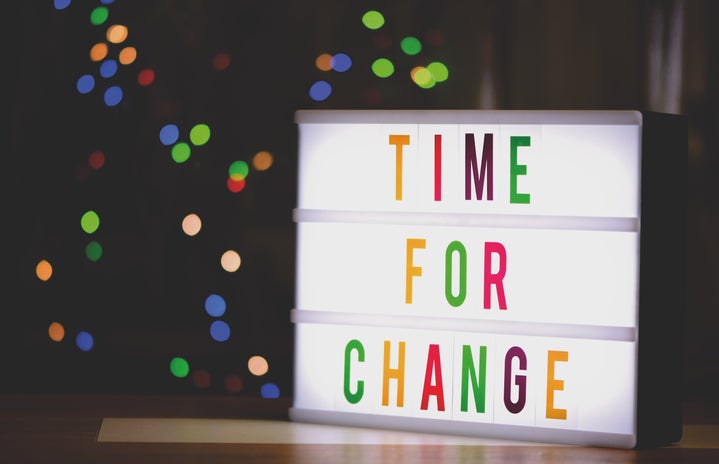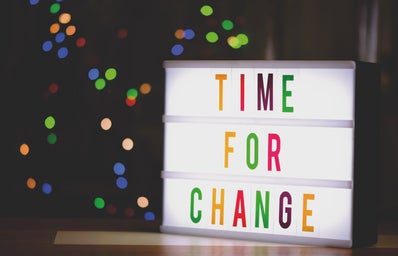As the nights get longer and the weather gets colder, many college students are experiencing what many consider “seasonal depression” or “winter depression.” Even though this term gets thrown around a lot, seasonal affective disorder (SAD) impacts more than 3 million Americans per year. According to the National Institute of Mental Health, symptoms typically begin after daylight savings in late fall or early winter. SAD is a recognized mental illness by the American Psychological Association and requires a clinical diagnosis.
However, many people experience a less extreme version of SAD, nicknamed “the winter blues.” Dr. Matthew Rudorfer, a mental health expert at News in Health, defined “winter blues” as a “general term, not a medical diagnosis.” As far as the severity, he states, “[The winter blues is] fairly common and it’s more mild than serious. It usually clears up on its own in a fairly short amount of time.” Furthermore, according to the article, “The so-called winter blues are often linked to something specific, such as stressful holidays or reminders about absent loved ones.”
Regardless, the winter blues can be very difficult, especially for college students. Even though people try to shape winter as “the most wonderful time of the year,” this time can often be stressful and chaotic. Struggling with finals, buying Christmas gifts for your family and returning to your childhood home can often create internal conflict for college students, and these emotions can be heightened in December as students juggle academic rigor and the holiday rush.
Many students might feel like there isn’t a proper outlet for their emotions or that they don’t have enough time to focus on their mental health. As someone who also struggles with the winter blues, here are some of my best tips for prioritizing your mental health this season.
Purposeful Breaks
As you study for finals, make an effort to implement purposeful breaks into your study schedule. Research from Cornell Health shows that taking a study break, anywhere from five to 30 minutes, can help students increase their productivity and protect their mental health. Just as a reminder, a purposeful break is NOT looking at your phone. Try an activity that can re-energize you. For example, take a short walk around campus or change your environment. If you’re feeling festive, make a cup of hot cocoa or cut out some paper snowflakes. You can also call a loved one or talk to friends for support. It’s also good to take care of your physical health during this time—go for a quick jog, stretch or do some yoga. The options are endless.
Protect Your Circadian Rythm
A circadian rhythm is a behavior that follows a 24-hour cycle. Sleep is one of our key circadian rhythms, and it can often be affected by changes in light. During daylight savings, many people might feel sluggish as their bodies try to adapt to the time change. To preserve your circadian rhythm, try creating a sleeping schedule and sticking to it. It might seem juvenile to have a bedtime, but going to sleep and waking up around the same time each day can help your body fight diseases, retain energy and increase mental motivation. According to a survey conducted by Mattress Inquirer, people with strict wake-up times were 13% more satisfied with their personal lives, 45% more satisfied with their financial situation and 42% more satisfied with their work-life balance. Sleep is extremely productive and beneficial. According to the Sleep Foundation, college students should get seven to nine hours of sleep per night. Try not to fall into sleep debt this winter. Sleep lost is sleep you can’t get back.
Work-Life Balance
As cheesy as it sounds, life is all about balance, especially during the holidays. It might seem easy to overwork yourself during exam week or over-relax yourself during winter break. During exams, don’t confine yourself to the dorm or library. Make time to relax, spend time with friends and be active. The same thing applies as you celebrate the holidays. Find ways to maintain balance over the holidays. Maybe try to work out, go on walks or pick up a new hobby during the downtime. It’s important to enjoy your break and relax, but it is also important to take care of yourself by staying engaged and present in the moment. For me, I like to cross-stitch or color while I watch TV. Winter break is also when I catch up on my reading. Try to find something fun and engaging to entertain yourself with over the break. It’ll make your break feel all the more fulfilling.
Find a Support System
Sometimes, it can be easy to feel isolated during the wintertime. You might spend a lot of time cooped up in your dorm studying or feel isolated as you change environments over the break. Regardless, it is important to maintain a connection during this time. Study with your friends so that you can still spend time together. Also, try to find breaks in your day when you can call your family or friends who might be far from you during this time. In addition, it can sometimes feel isolating or stressful to travel to and from different places. We all adjust differently and at different rates. It is important to reach out to others and try to maintain meaningful connections. In a study about the centrality of social interaction in human brain function, researchers found that our brains function better when we interact with others and experience togetherness. Don’t be afraid to reach out to others.
Asking for Help
Even though the winter blues are a fairly common phenomenon, if it progresses to the point where these emotions become too extreme or intense for you to deal with, don’t be afraid to reach out to university counseling or other psychological services in your area. Everyone will struggle with mental health at one point in their life. It is okay to reach out for additional support. If you are a SLU student who thinks you are struggling with seasonal depression, please reach out to the University Counseling Center.
While the winter blues might seem daunting, these methods can help benefit your everyday life this winter. However, it is important to note that everyone’s brain works differently. What works for me might not work for you and that’s totally okay. Be kind to yourself this season and find new ways to nourish your mental health. I hope you have a happy and mentally healthy holiday this year!


